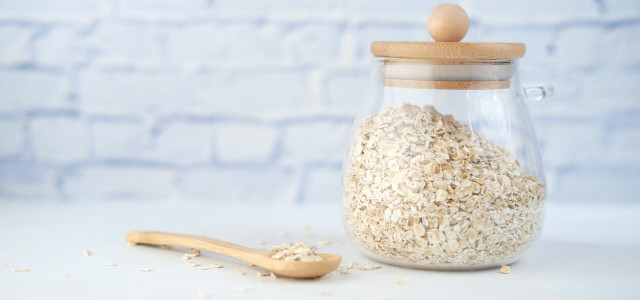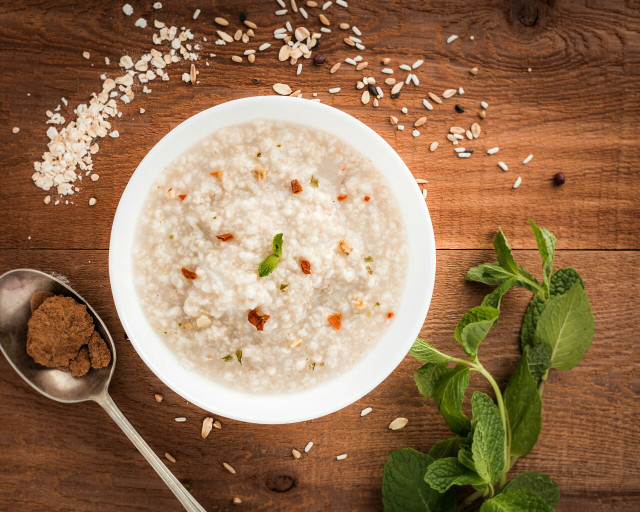
Oats are healthy – that’s clear. Are the so-called oat days automatically healthy too? We explain the background to this nutritional trend.
There are always new trends that promise to be the ultimate secret to weight loss and health. One of these trends that has recently gained more attention is the so-called “oat days”. But what exactly is behind this concept and is it really as effective as it is claimed to be?
What are oat days?
Oat days, also known as oat cures, aim to improve blood sugar levels. As the name suggests, you eat mainly oats for one to three days. Depending on the instructions, this means 60 to 80 grams of oat flakes three times a day, explains Apotheken Umschau.
These can be cooked in water or broth, or soaked overnight. Completely raw and unsoaked, oat flakes are less healthy because of the antinutrient phytic acid they contain. This prevents us from absorbing the nutrients they contain properly.
The plan for the oat days allows for the meals to be seasoned, for example with cinnamon or vanilla. However, other side dishes are not allowed. Proteins and fats in particular are not included during the oat days.
Alternatively, there are also the so-called moderate or modified oat days, which those interested can use to get used to the treatment. A small amount of healthy foods such as vegetables, berries or nuts can be eaten with the oatmeal.
Snacks between meals impair the effect of the oat days. You should therefore avoid these if you are planning an oat cure. Also important, as always: drink enough! Unsweetened tea or water is best.
Are oat days really healthy?

(Photo: CC0 / Unsplash / Mae Mu)
Oatmeal is very healthy. However, health-conscious people typically eat it together with (plant-based) yogurt, berries, nuts, nut butter or other side dishes. While this can be part of a balanced diet, the idea of oat days is different.
Oatmeal contains a particularly high amount of beta-glucan. The fiber causes cells to react more sensitively to insulin. This lowers blood sugar levels.
Diabetologist and nutritional doctor Dr. Winfried Keuthage explains other advantages to Apothekenumschau: “Beta-glucan lowers the pH value in the large intestine, which hinders the growth of bad bacterial strains and stimulates the proliferation of good bacterial strains.”
Especially for patients with type 2 diabetes or fatty liver disease, oat days can be a suitable measure to regulate blood sugar. According to Keuthage, however, thanks to its mode of action, the oat cure is also suitable for completely healthy people to lose weight healthily and effectively.
How often should I do oat days?
The oat days provide a lot of nutrients, so they are something completely different for the body than, for example, a radical diet such as the “zero diet” or the “rice diet”. Most people can therefore repeat them every six to eight weeks without any problems.
The German Diabetes Help even recommends the following variants:
-
Two oat days per week over a period of four to eight weeks
-
Regular repetition of the classic oat cure after four to eight weeks
- as a long-term treatment: six “oat meals” per week or in the form of an “oat day”
-
Include oats in your regular diet, for example with recipes such as oat yoghurt, oatmeal schnitzel or homemade porridge
Is oat milk okay too?
During the oat days, it is not recommended to cook or soak the oatmeal in oat milk. Nor should the amount of oatmeal be replaced with oat milk. Due to the processing, it does not provide the same nutrients as oatmeal itself.
Read more in this article:
It is also more difficult to control the right amount of oatmeal per meal when using oat milk, as it naturally contains some oatmeal itself. If you really want to stick to the oat days, stick to water when processing the oatmeal.
Do oat days also work gluten-free?
Yes, because oat flakes are actually gluten-free. If you have a strong gluten sensitivity or celiac disease, it is also worth paying attention to the production process: traces of other types of grain could have found their way into the oat flake packaging, which could lead to problems. Only brands that can exclude even the smallest gluten contamination are suitable in this case.
Conclusion on the Oat Days
Oat days can therefore be a useful cure for both healthy and sick people. The German Diabetes Association does not describe any risks. As with any change in diet, you should still seek medical advice before you start.
What you can do in any case is to incorporate the healthy grain into your varied diet. For example, get inspiration from the following recipes:
- Wonder bread: It’s so easy without flour and yeast
- Oatmeal meatballs recipe: simple and filling
- Oatmeal waffles: A recipe for hearty waffles
Read more on Techzle\.com:
- Vegan diet: advantages, rules and what you need to consider
- Changing your diet: With these tips it will be a success
- Building muscle through nutrition: What you should consider